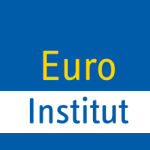The Jean Monnet Network EuMePo stands for Jean Monnet Network European Memory Politics: Populism, Nationalism and the Challenges to a European Memory Culture (2019-2022). The Network is a partnership between the University of Victoria and the Institute for Political Studies (IEP) at the University of Strasbourg (France), the Adam Mickiewicz University in Poznań (Poland) and the Eötvös Loránd University (ELTE), Faculty of Social Sciences in Budapest (Hungary).
Description:
Populist parties are critically dependent on a strong sense of collective identity and community, a tangible sense of who the ‘people’ are in whose name they challenge political elites and institutions. It is mainly through a particular reading of the 20th century past, that nationalist-populist parties seek to promote their own political objectives and undermine the credibility of a trans-national, European sense of identity and community. The Jean Monnet Network “European Memory Politics” examines how history is reinterpreted focusing in particular on the memory of the continent’s totalitarian past, the recollection of the World Wars, Fascism, the Holocaust, Colonialism, and the legacy of Communism and Cold War Divide. What does this development mean for modes of commemorating Europe’s 20th century past and public history at the national and EU level? The ‘re-nationalization of memory’ has not received the scholarly, policy or public attention this issue deserves with a view to the precarious state of Europe’s democratic culture and the project of European integration.
The Jean Monnet Network establishes a transnational team of scholars studying the politics of memory, its use in the mobilizing efforts of populist-nationalist parties across the continent and the tension to an emerging transnational memory culture in the EU. Considering the contested interpretation of the past and its constitutive role for contemporary political life in the EU, the Network’s key objectives are the following: create a long-term transnational network of scholars from different disciplinary backgrounds; produce innovative and impactful scholarly research within this network; support first-hand learning experiences for undergraduate, doctoral students and early-stage career scholars in Canada and Europe; engage in high-impact public outreach working with non-academic partners (media, museums, high schools, teachers’ associations, online platforms), and produce a series of knowledge tools in the broader field of memory politics that will have a lasting informative and educational effect in the wider public.
Network activities:
- Studies on how the collective memory of Europe’s 20th century past has become politically contested centrally by the rise of populist-nationalist parties in the European public sphere;
- Creation of a multi-dimensional and sustained dialogue between the academic world, the policy community and the broader public by targeting key stakeholders in the educational and public policy domain;
- Introduction of a new generation of Canadian and European scholars and students to the field of memory politics in Europe and to relate this experience to comparable challenges in Canada (with respect to its colonial legacy and reconciliation with Indigenous peoples);
- Engaging widely with civil society to assess the role of memory politics in the rise of populist-nationalist actors, and its implications for European democracy and integration.
Team at UVic:
- Oliver Schmidtk (Lead)
- Jordan Stranger-Ross
- Charlotte Schallié
- Matt James
- Helga Thorson
- Beate Schmidtke
- Jodie Walsh
Team at European Universities:
- Birte Wassenberg, Academic Co-ordinator, Institute for Political Studies (IEP) at the University of Strasbourg (France)
- Sylvain Schirmann, Assistant to the academic co-ordinator, Institute for Political Studies (IEP) at the University of Strasbourg (France)
- Christine Aquatias, Assistant to the academic co-ordinator, Institute for Political Studies (IEP) at the University of Strasbourg (France)
- Beata Halicka, Academic co-ordinator, Adam Mickiewicz University in Poznań (Poland)
- Ildikó Barna, Academic co-ordinator, Eötvös Loránd University (ELTE) in Budapest (Hungary)



